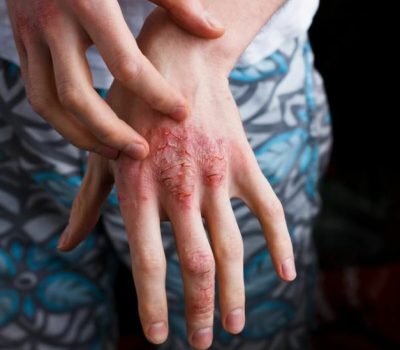Cozmoderm Clinic | Best Dermatology Clinic For Skin and Hair Care In Nagpur
Autoimmune Disease
Home / Autoimmune Disease

Autoimmune Disease
What is an autoimmune disease?
An autoimmune disease is a condition in which your immune system mistakenly attacks your body. The immune system normally guards against germs like bacteria and viruses. When it senses these foreign invaders, it sends out an army of fighter cells to attack them. Normally, the immune system can tell the difference between foreign cells and your own cells. In an autoimmune disease, the immune system mistakes part of your body, like your joints or skin, as foreign. It releases proteins called autoantibodies that attack healthy cells.
Why does the immune system attack the body?
Doctors don’t know exactly what causes the immune system to misfire. Yet some people are more likely to get an autoimmune disease than others.
Certain autoimmune diseases, like multiple sclerosis and lupus, run in families. Not every family member will necessarily have the same disease, but they inherit a susceptibility to an autoimmune condition.
Because the incidence of autoimmune diseases is rising, researchers suspect environmental factors like infections and exposure to chemicals or solvents might also be involved.
some autoimmune conditions affecting the skin.
Psoriasis:
Psoriasis causes patches of flaky, inflamed skin. This occurs due to the skin producing too many new skin cells. Psoriasis is usually not a serious condition, but it can be painful or distressing.
The symptoms of psoriasis include:
- thick, inflamed patches of skin, usually on the head, elbows, and knees
- scaly skin
- itching
- pain
Vitiligo:
Vitiligo is a chronic condition that causes the skin to lose its color. One type of vitiligo, called non-segmental vitiligo, is an autoimmune disease. Dermatologists believe that it occurs when the immune system attacks melanocytes, which are cells that produce melanin. It is not uncommon for vitiligo to occur alongside other autoimmune conditions, such as lupus and Sjogren’s syndrome.
The symptoms of vitiligo include:
- white or light patches of skin on the hands, feet, arms, and face
- white or gray hair on the scalp, brows, or eyelashes
- discoloration on the inside of the mouth and nose
Scleroderma:
Scleroderma causes abnormal growth of connective tissue in the skin and blood vessels, leading to skin that is hard and thick. In some people, the condition is mild, but in some others, scleroderma can affect internal organs and be life-threatening.
Symptoms include:
- calcium deposits in the connective tissues
- Raynaud’s phenomenon, which causes the fingers to change color when they are cold
- ulcers on the fingertips, which can lead to gangrene
- thickening and tightness of the skin on the fingers and toes
- loss of motility in the esophagus, which may make it difficult to swallow
- red spots or blood vessels on the face
- progressive shortness of breath
MAINTENANCE TREATMENT
There are many autoimmune diseases. Some cause distressing symptoms that affect a person’s quality of life but otherwise are not life threatening. Other autoimmune conditions are more serious and can cause lasting tissue damage.
In many cases, management strategies such as taking medication, modifying the diet, and making lifestyle changes can help reduce the symptoms.
A doctor can help diagnose and recommend treatments for specific autoimmune conditions.
